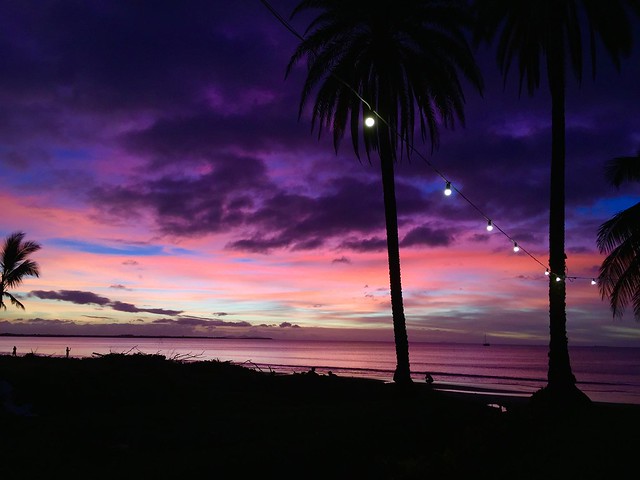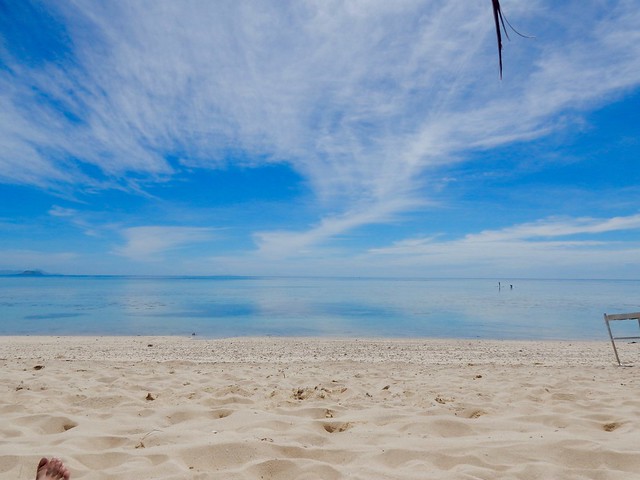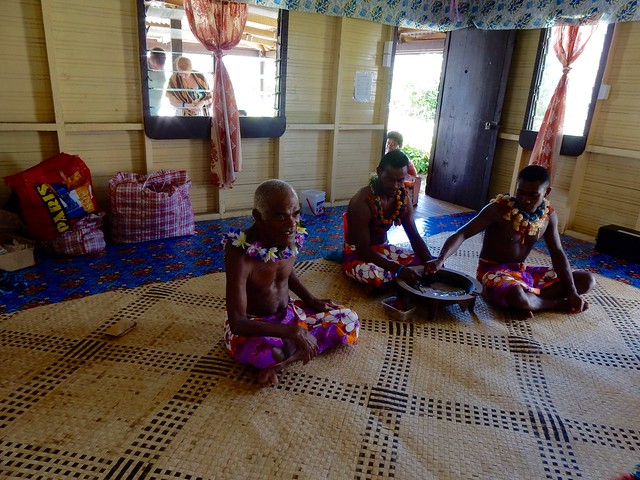Bula!
By Andrea H.
June 13, 2016
Everyone in the United States yearns of going to the islands in the Pacific. There is something appealing about the warm air, sea and endless amounts of sunshine. Fortunately for me, I was able to experience four of the 333 islands of Fiji. Upon arrival, I fell in love. The air was warm and the sun was shining to bright. Every Fijian I met had a huge smile on their face and greeted me with a warm, “Bula!” — welcoming me to their home.
As a student studying abroad, I travel on a budget, so instead of booking an ocean-front room with air conditioning and my own bathroom, I books a 16-person dormitory room in Bamboo Backpackers hostel. The water pressure was a little minimal and there may have been a gecko or two roaming around the ceiling, but the overall experience was unlike any other. The atmosphere was incredible; the workers were overly nice (which I assumed was good customer service) and the view of the water was breathtaking.
But once I was out of the tourist bubble, there was a change. The buildings became run down and rugged, and any signs of tourist attractions were gone. Fiji has recently had a couple of cyclones hit, and they have caused substantial damage to parts of the islands. On top of the damage from the cyclones, a majority of the residents live in poverty.
It was once we got out of our comfort zone that I experienced culture shock. I had the opportunity to visit one of the villages located on one of the islands. Before we could look around the island, we had to cover up. Women had to have their shoulders covered, and long skirts to their knees couldn’t be seen. Men also had to be covered and weren’t allowed to wear hats, because only the village chief wears a hat.
We were welcomed by three men and offered their traditional kava drink, made from the roots of the kava plant. Local women were set up outside with an abundance of necklaces, picture frames and crafts to raise money for their community. After our welcome, we took a walk around the village. The buildings were run down and big wells were located all around the village. These wells are the island’s only source of fresh water, and during the rainy season they try to collect as much water as they can to survive the dry spells. If not enough water is collected, it has to be shipping from the main islands, which is a luxury some can’t afford.
For me, it was hard to fathom the idea that the village could be without water. Water is an essential part of life, and it has always been readily accessible to me. My mind was blown. This was my first real experience with culture shock and I wasn’t quite sure how to handle it. I hung on to everything I saw and every word that was said so that I would never forget that humbling feeling.



About the blogger
Andrea H. is studying abroad on the ISA: AUT University program in Auckland, New Zealand.